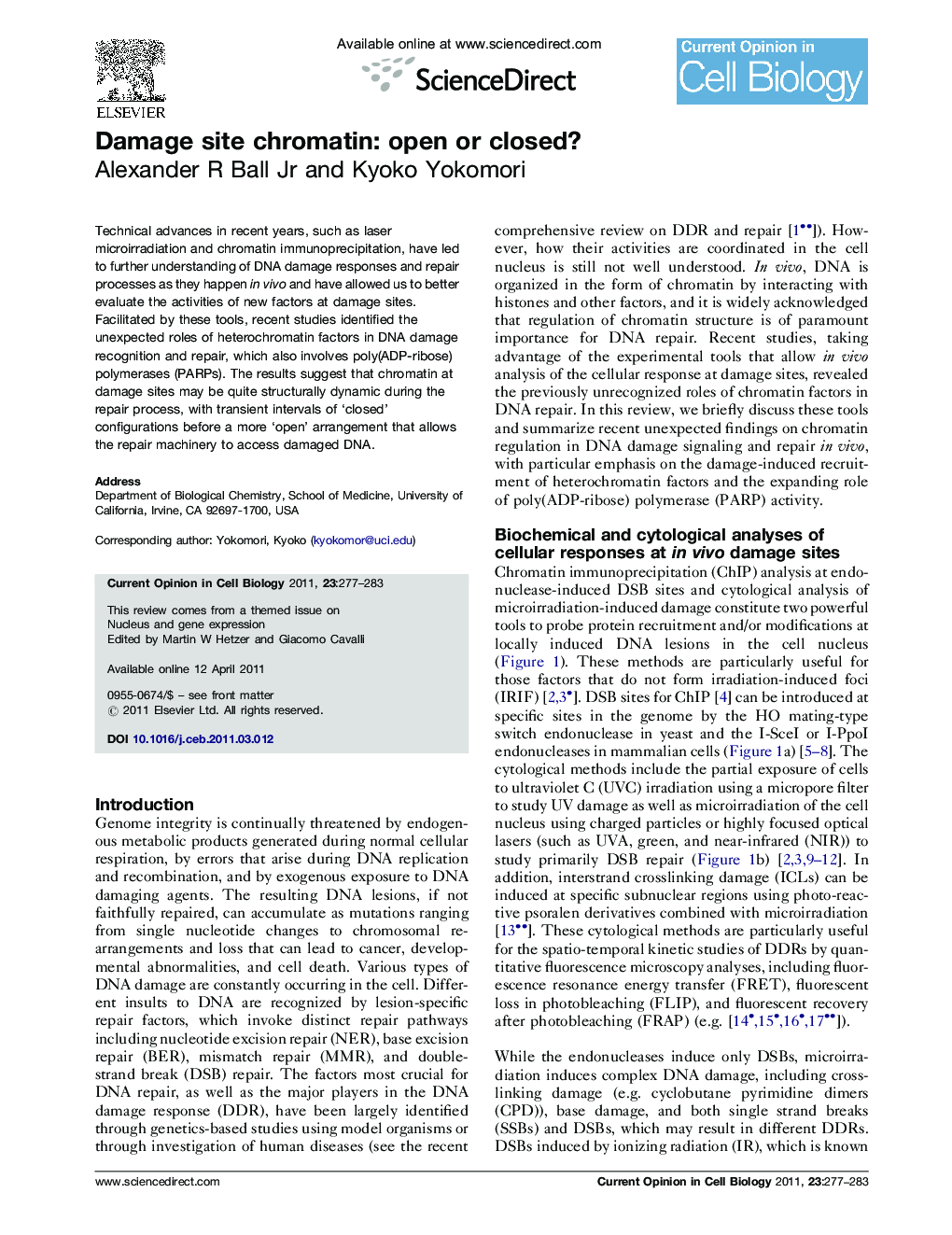| Article ID | Journal | Published Year | Pages | File Type |
|---|---|---|---|---|
| 2169824 | Current Opinion in Cell Biology | 2011 | 7 Pages |
Abstract
Technical advances in recent years, such as laser microirradiation and chromatin immunoprecipitation, have led to further understanding of DNA damage responses and repair processes as they happen in vivo and have allowed us to better evaluate the activities of new factors at damage sites. Facilitated by these tools, recent studies identified the unexpected roles of heterochromatin factors in DNA damage recognition and repair, which also involves poly(ADP-ribose) polymerases (PARPs). The results suggest that chromatin at damage sites may be quite structurally dynamic during the repair process, with transient intervals of ‘closed’ configurations before a more ‘open’ arrangement that allows the repair machinery to access damaged DNA.
Related Topics
Life Sciences
Biochemistry, Genetics and Molecular Biology
Cell Biology
Authors
Alexander R Ball Jr, Kyoko Yokomori,
